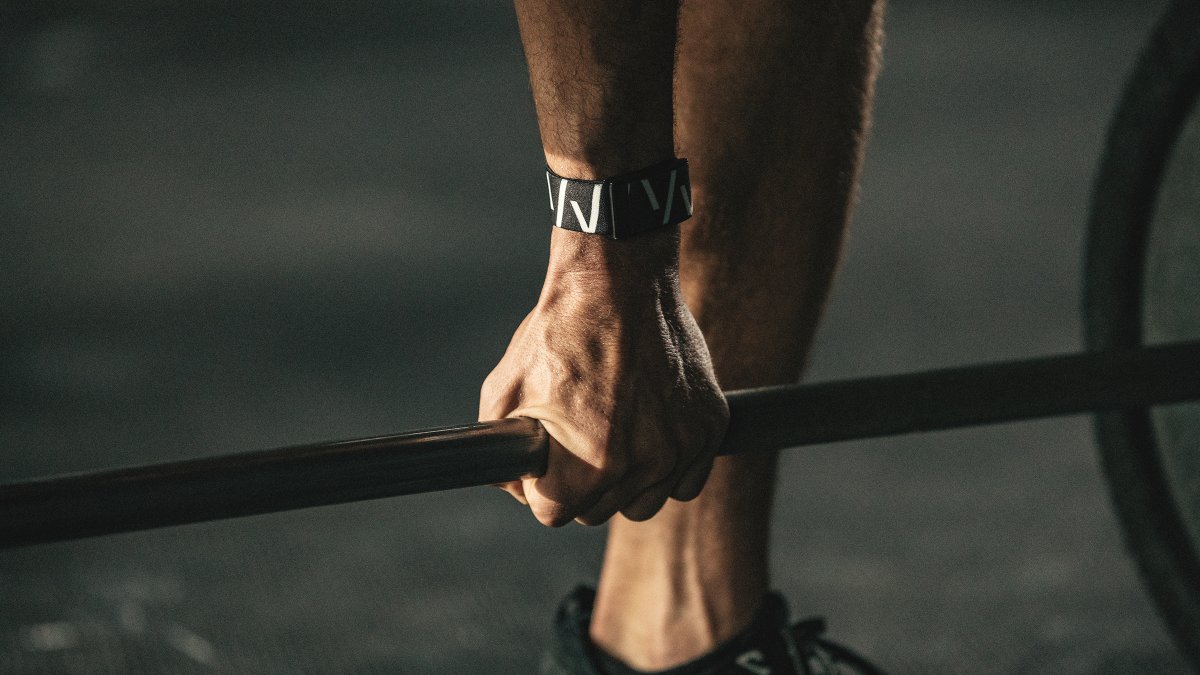People have become obsessed with data and technology. If you’re old enough to recall the first-generation iPod, or as I like to call it, “the brick” Apple advertised it using the tagline "1,000 songs in your pocket." Who knew that just 10 years later, 1,000 songs would be negligible, because your whole life would be in your pocket?
Fitness trackers like FitBit, Garmin, and Whoop have taken the world of fitness and turned energy output into an infatuation amongst gym-goers and type-A personalities. The excitement in how many steps you take in a given day is terrifyingly ludicrous. But, the biggest problem with fitness trackers, isn’t that they're addicting, it’s that they’re not addictive enough.
Cross-sectional studies have shown that the average time of use for a fitness tracker is just 6 months [R] before users ditch them. The lingering question is, do fitness trackers really work? And are fitness trackers accurate? It’s one thing to track how many calories you burn in a day, sleep patterns, and heart rate. But if the data output is wrong, then are fitness trackers really worth it?
How Do Fitness Trackers Work?
Although technology is constantly evolving to provide more actionable insights into how you can improve your well-being, studies have shown mixed results for how accurate these devices really are. Studies from fitness trackers include applications for tracking and monitoring metrics such as distance walked or ran, caloric expenditure, sleep patterns, and heart rate monitoring. Most of these devices are synced to smartphones or desktops through apps for long-term data tracking.
Heart Rate Monitors And Accelerometers
One of the fundamental keys however to understanding how accurate fitness trackers really work is knowing the difference between what they are measuring. When it comes to fitness trackers, there are two distinctly different functions, that most trackers use. There are accelerometers and there are heart rate monitors. Some fitness trackers such as WHOOP and FitBit have both. Accelerometers use your body’s acceleration to estimate energy expenditure. Electromagnetic sensors are used to detect motion, and the fitness trackers interpret that information using an algorithm that trains the devices to recognize whats interpreted as a step.
Fitness trackers that measure heart rate use equations based upon age, height, gender, weight and activity level, to estimate caloric expenditure. Most fitness trackers used a method called photoplethysmography, which measures blood volume by shining a beam of green LED light into the wrist. When your heart rates beats, more blood flows into the vessels, which absorbs more green light. When the heart ebbs, it absorbs less green light. From these measurements, heart rate is calculated.
![]()
For example, the new WHOOP strap 3.0 has a built-in strain coach. Whoop explains that strain-coach is an exertion level recommendation based on how recovered your body is. When you start an activity, WHOOP will show you in real-time whether you need to push harder, if you’re over-exerting, or if you’ve reached your goal. But how does a fitness tracker really know, that you’re, “overdoing it” when it comes to training?
WHOOP calculates your recovery based on 3 physiological markers: Heart Rate Variability (HRV), Resting Heart Rate (RHR), and sleep. These metrics are calibrated to your baseline to give you personalized daily recovery recommendations. HRV measures the variation in time between each heartbeat. Leading exercise physiologists agree that HRV is one of the most useful tools for determining optimal training loads.
WHOOP also measures your RHR during your deepest sleep each night for consistent, controlled readings. Over time, you can monitor changes in RHR as you navigate training cycles. WHOOP also tracks sleep, to accurately find optimal training zones, including sleep cycles, disturbances, respiratory rate, circadian rhythm, and more. Every night WHOOP tells you exactly how much sleep you need, so you can function at your best the next day.
Keeping your heart rate at a constant BPM to achieve certain results like burned body fat or calories is understandable. Heart rate training is no new modality of performance training, and can definitely help achieve better results in performance, to improve muscular endurance. But the question still, is are fitness trackers really worth it?
Are Fitness Trackers Accurate?
Most reviews of fitness trackers compare novelty features and benefits, that propose subjective opinions, yet do not disclose objective measurements or results that provide accuracy of information. The functions of each type of fitness tracker are similar, yet they all utilize different proprietary calculation algorithms, user interfaces, and applications.
A study published in BMC Public Health compared four of the most popular fitness trackers (Withings Pulse, Misfit Shine, Jawbone Up24, and Fitbit Flex for accuracy, functionality, user experience, and user satisfaction.
Accuracy is especially important to help end-users track important measures to successfully reach goals, in regard to training, body composition, and endurance endpoints and objectives. The table below shows a comparison chart for how accurate the fitness trackers actually were in regard to tracking different movements, and steps. As you can see the reporting was relatively accurate with a small deviation of error.
|
Experiments |
Devices |
Accuracy (%) |
Repeatability |
|
Indoor Walking Straight |
Jawbone |
97.7 |
0.55 |
|
Withings |
99.9 |
0.86 |
|
|
Misfit |
92.4 |
0.69 |
|
|
Fitbit |
99.6 |
0.72 |
|
|
Walking Up/Down Stairs |
Jawbone |
97 |
0.89 |
|
Withings |
97.2 |
0.83 |
|
|
Misfit |
97.8 |
0.79 |
|
|
Fitbit |
96.4 |
0.81 |
|
|
Walking on Treadmill |
Jawbone |
97 |
0.89 |
|
Withings |
97.2 |
0.83 |
|
|
Misfit |
97.8 |
0.79 |
|
|
Fitbit |
96.4 |
0.81 |
The results showed that the Withings Pulse is the most friendly and satisfactory from the users' viewpoint. It is the most accurate and repeatable for step and distance tracking, which is the most important measurement of fitness tracking, followed by Fitbit Flex, Jawbone Up24, and Misfit Shine. In contrast, Misfit Shine has the highest score for design and hardware, which is also appreciated by users [R].
Although this study showed that the trackers were accurate in calculating activity, were they accurate in tracking energy expenditure? You can count all the steps you want, but determining energy expenditure is the most important metric to help achieve body composition goals. Without accurate readings of calories burned, you cannot accurately track your fitness goals.
![]()
A recent evaluation conducted at the Stanford University School Of Medicine examined seven different fitness trackers. The team evaluated the Apple Watch, Basis Peak, Fitbit Surge, Microsoft Band, Mio Alpha 2, PulseOn and the Samsung Gear S2 and showed that six of those had an error rate of less than 5% when measuring heart rate. However, NONE of those devices measured energy expenditure accurately. Even the most accurate device was off by an average of 27% and the least accurate was off by 93 percent [R].
Overestimating or underestimating energy expenditure by 27% provides an enormous margin of error when trying to track your goals, and at 93%... Why even spend the money.
Another study with a total of 44 subjects showed that the same result that most fitness trackers reliably measure heart rate, number of steps, distance, and sleep duration, which can be used as effective health evaluation indicators and help motivate individuals to become more active. However, the measurement accuracy of energy consumption was still inadequate [R].
Several studies conducted by WHOOP have shown that measurements of heart rate and sleep variability [R, R] are incredibly reliable and can help evaluate performance measurements. Yet, even WHOOP which is considered the current Gold Standard of trackers does not have any accurate clinical evidence in the accuracy of energy expenditure.
The Problem With Accelerometers
Accelerometers, pose a significant problem, especially when it comes to counting steps, because they don't actually count each one, they approximate them.
The algorithms that are used in wearable device technology and fitness trackers, are based from research conducted with study participants in their 20s, designed to measure purposeful walking. That means, that if you're not walking with a normal cadence, the fitness tracker, will most likely be inaccurate in step detection. For example, if you walk and swing your arm forward in a normal pattern, the accelerometer will detect your step. However, if you limp, shuffle, or don't swing your arm, while walking, your step goes uncounted. This is exactly what what uncovered by a study and systematic review conducted on FitBits wearable technology.
The study found that Fitbit fitness trackers, undercounted steps 25% of the time, in older adults, compared to other devices. The study also found, that when subjects walked or jogged normally, the devices undercounted steps 50 percent of the time, compared with observed steps. while outside of the lab, it over-counted by 35% [R].
The Problem With Heart Rate Monitors
Green LED sensors can be unreliable. Green light has to penetrate the skin to measure blood volume. Several studies suggest that green light is more likely to be absorbed by more melanated skin [R]. Users with darker skins, may find that fitness trackers, don't give accurate readings. Users have even complained that Fitbit devices don't even work at all. Smartwatch brand Polar even states that those with dark skin and tattoos, may affect the accuracy of the readings on wrist worn fitness trackers.
Are Fitness Trackers Worth It?
Fitness trackers will continue to become more accurate over time. Ten years ago, much like the iPod and now iPhone, didn’t have nearly the capabilities they do now. Companies like WHOOP are investing millions of dollars in research to provide better data and metrics, to translate into better performance. However, overestimating or underestimating energy expenditure by 23% provides an enormous margin of error when trying to track your goals across fitness trackers in general.
A recent study conducted in 2020, compared four different fitness trackers; the Apple Watch Series 4, Polar Vantage V, Garmin Fenix 5, and Fitbit Versa, and concluded that the Apple Watch and Polar measured heart rate fairly accurately, yet none of the wrist worn trackers, should be used to monitor energy expenditure at the levels tested, which ranged from sitting to sprinting [R].
So while FitBit and Garmin may provide a great tool to monitor specific activities like walking or running, these fitness trackers are wildly inaccurate. Not to mention they’re expensive, and the average lifetime of use is only 6 months. To close, fitness trackers can be useful when used as a motivational tool to get out and challenge yourself to a step competition, or to be more competitive with your friends from work. But, according to current findings, fitness trackers, aren’t really worth the spend.
Need Help Tracking Your Macros And Nutrition To Meet Your Health And Fitness Goals?
SWOLVERINE IS AN ENDURANCE ATHLETE AND ACTIVE LIFESTYLE BRAND. MADE FOR THE ELITE ATHLETE, AND THE STRONG-WILLED OUR PRODUCTS WERE DESIGNED TO FUEL YOUR ATHLETIC PERFORMANCE. WE PERFORM WHEN YOU PERFORM.
We believe that everyone can optimize not only their athletic performance but their human potential. The way we believe we can optimize performance is through transparency, clinically effective doses, and clinically proven ingredients with evidence-based outcomes. We provide the nutrients you need to power your active lifestyle.
References
Maher, C., Ryan, J., Ambrosi, C. et al. Users’ experiences of wearable activity trackers: a cross-sectional study. BMC Public Health 17, 880 (2017). https://doi.org/10.1186/s12889-017-4888-1
Kaewkannate, K., Kim, S. A comparison of wearable fitness devices. BMC Public Health 16, 433 (2016). https://doi.org/10.1186/s12889-016-3059-0
Xie J, Wen D, Liang L, Jia Y, Gao L, Lei J. Evaluating the Validity of Current
Mainstream Wearable Devices in Fitness Tracking Under Various Physical Activities: Comparative Study. JMIR Mhealth Uhealth. 2018;6(4):e94. Published 2018 Apr 12. doi:10.2196/mhealth.9754
Piazena H, Meffert H, Uebelhack R. Spectral Remittance and Transmittance of Visible and Infrared-A Radiation in Human Skin-Comparison Between in vivo Measurements and Model Calculations. Photochem Photobiol. 2017 Nov;93(6):1449-1461. doi: 10.1111/php.12785. Epub 2017 Jul 27. PMID: 28471473.
Feehan L, Geldman J, Sayre E, Park C, Ezzat A, Yoo J, Hamilton C, Li L Accuracy of Fitbit Devices: Systematic Review and Narrative Syntheses of Quantitative Data JMIR Mhealth Uhealth 2018;6(8):e10527URL: https://mhealth.jmir.org/2018/8/e10527 DOI: 10.2196/10527
Düking P, Giessing L, Frenkel MO, Koehler K, Holmberg HC, Sperlich B. Wrist-Worn Wearables for Monitoring Heart Rate and Energy Expenditure While Sitting or Performing Light-to-Vigorous Physical Activity: Validation Study. JMIR Mhealth Uhealth. 2020 May 6;8(5):e16716. doi: 10.2196/16716. PMID: 32374274; PMCID: PMC7240439.














